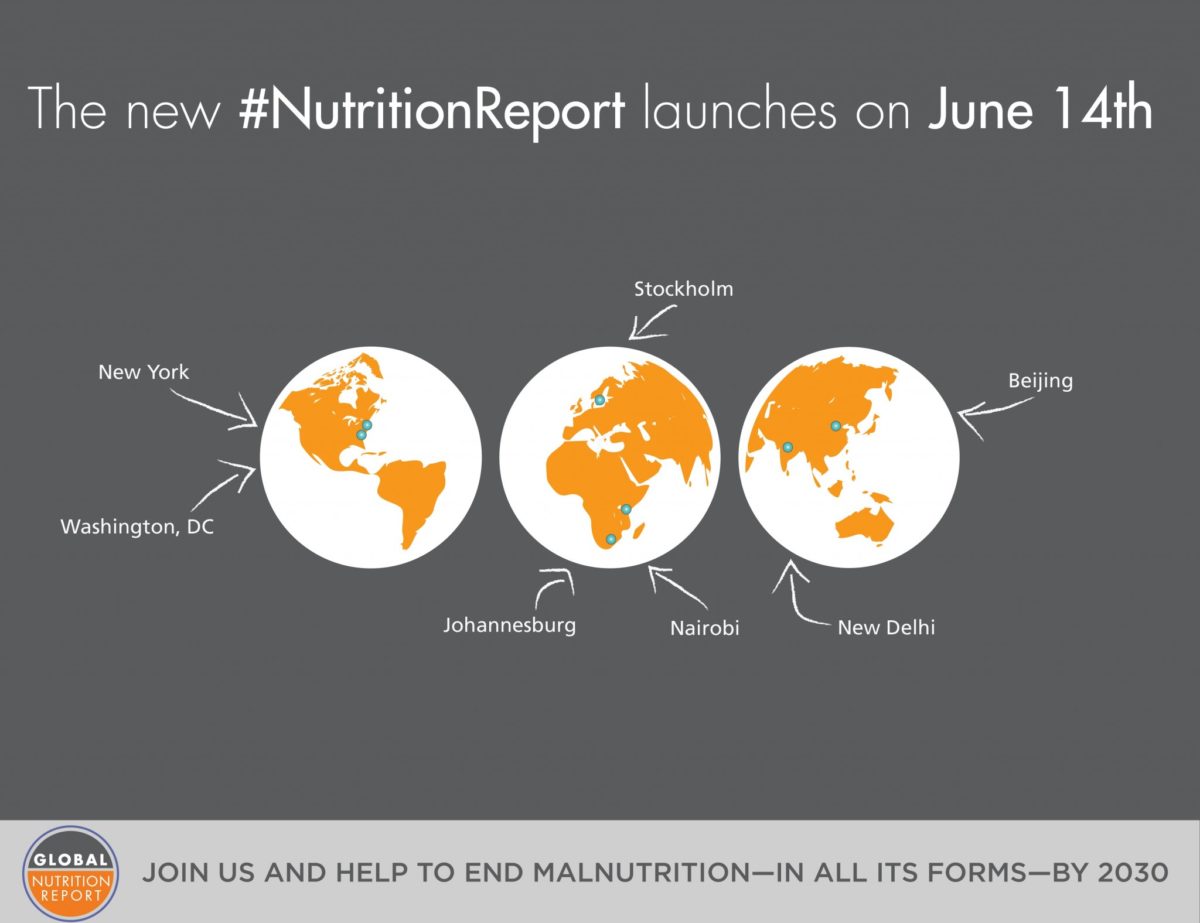New Research Sheds Light on Breaking Cycle of Malnutrition

Launched in cities around the world, The 2016 Global Nutrition Report underscores that malnutrition is a truly global problem affecting 1 in 3 people worldwide. The report examines how countries around the world are doing in reducing this number, and puts forward several recommendations to spur progress.
“We now live in a world where being malnourished is the new normal. It is a world that we must all claim as totally unacceptable,” said Lawrence Haddad, Co-Chair of the Global Nutrition Report’s Independent Expert Group and Senior Research Fellow at the International Food Policy Research Institute.
Urgent action is needed is needed if the world is going to break this “new normal.” Here are two recommendations put forward by The 2016 Global Nutrition report:
- Drawing on research from the World Bank and Results for Development, the report estimates that countries will need to invest $7 billion in nutrition specific interventions in the next decade to meet the World Health Assembly (WHA) global nutrition targets on anemia, stunting, wasting and exclusive breastfeeding.
- The report also show the importance of collaborating across other sectors, like agriculture, water, sanitation and hygiene, and education in order to improve nutrition.
With this need for collaboration in mind, the United States government announced at the report launch in Washington, DC a plan to better coordinate between eleven U.S. agencies to align nutrition programming. This announcement fulfils a commitment made by the U.S. in 2013 as part of the first Nutrition for Growth summit.
In order to end malnutrition, the world can no longer accept it as the “new normal.” It is unacceptable that so many people suffer every day from the scourge of malnutrition. Pope Francis, in his remarks to the World Food Programme Board in Rome on Monday, June 13 said it best: “It is not enough to offer broad reflections or engage in endless discussion, constantly repeating things everyone knows. We need to “de-naturalize” extreme poverty, to stop seeing it as a statistic rather than a reality.” When the world normalizes extreme poverty, hunger and malnutrition, the faces and lives of the most effected are ignored.
As this new Global Nutrition Report highlights critical progress against malnutrition and the continued work that is needed, it is important not forget the stories of the people driving the progress – mothers working to nourish themselves and their children, small-holder farmers producing fruits and vegetables, and advocates speaking up for the importance of these programs in the U.S. and abroad.
